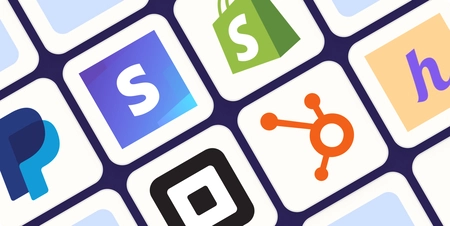
This guide aims to simplify your decision-making process by highlighting some of the latest and most effective payment systems tailored for small businesses.
Best Payment Systems for Small Business: A Comparison
Here’s a comparison table outlining the latest offerings in the realm of payment processing platforms:
| Payment System | Key Features | Suitable For | Pricing |
|---|---|---|---|
| Square | Easy setup, integrated POS system, extensive analytics | Retail, service industries | Transparent pricing per txn |
| PayPal | Global reach, versatile payment options, buyer protection | E-commerce, freelancers | Transaction fees + % per txn |
| Stripe | Developer-friendly APIs, scalable solutions, subscription billing | Tech startups, SaaS providers | Transaction fees + % per txn |
| Authorize.Net | Robust security, recurring billing, virtual terminal access | Small to mid-sized businesses | Setup fee + transaction fees |
| Shopify Payments | Seamless integration with Shopify, multi-channel sales support | E-commerce, retail | Transaction fees |
| Braintree | Mobile-first approach, international payments, fraud protection | Mobile apps, e-commerce | Transaction fees + % per txn |
Choosing the Best Online Payment System for Small Business
Understanding Your Needs
Before diving into the specifics of each payment system, it's essential to assess your business's unique requirements. Consider factors such as transaction volume, average sale value, and customer preferences. For instance, if you operate primarily online, a system like PayPal or Stripe might be more suitable due to their robust e-commerce capabilities and global reach.
Factors to Consider When Choosing a Payment System
- Ease of Integration: Look for platforms that seamlessly integrate with your existing systems, whether it’s an e-commerce website or a point-of-sale (POS) system in your brick-and-mortar store.
- Security Measures: Ensure the payment system complies with industry standards for data security (PCI DSS compliance) to protect both your business and your customers' sensitive information.
- Cost Structure: Compare transaction fees, setup costs, and any additional charges (such as chargeback fees or currency conversion fees) to find a solution that aligns with your budget.
- Customer Support: Access to reliable customer support can be critical, especially during setup or when facing technical issues. Look for providers known for responsive support services.
Conclusion
Selecting the best payment system for your small business involves careful consideration of various factors, from functionality and security to cost-effectiveness and customer support. By leveraging the information provided in this guide and understanding your business's specific needs, you can empower your finances with a fast, reliable payment processing platform that enhances operational efficiency and customer satisfaction.
Remember, the best choice ultimately depends on your unique business model and goals. Whether you prioritize ease of use, global reach, or robust security features, there's a payment system out there designed to meet your specific requirements and propel your business towards greater success in the digital marketplace.



